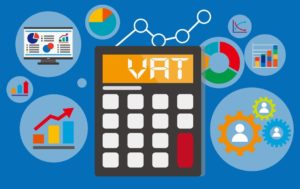Setting up a New Business

New Business Start-Up Options
What you need to set up a new business very much depends on the type of business that you plan to set up, where you work and whether you plan to take on staff to help or not.
Most businesses register as a Sole Trader, Limited Company or Partnership
Sole Trader
If starting off on your own it’s simpler to set up as a Sole Trader, but you’re personally responsible for your business’s debts. You also have some accounting responsibilities.
If you’re a Sole Trader, you run your own business as an individual and are Self-Employed.
You can keep all your business’s profits after you’ve paid tax on them. You are however, personally responsible for any losses your business makes. Certain rules must also be followed when naming and running your business.
To set up as a Sole Trader, you need to register for Self-Assessment and file a tax return every year.
You’ll need to:
- Keep records of your business’s sales and expenses
- Send a Self-Assessment tax return every year
- Pay Income Tax on your profits and Class 2 and Class 4 National Insurance
Limited Companies
If you form a limited company, its finances are separate from your personal finances, but there are more reporting and management responsibilities.
Directors’ Responsibilities
As a Director of a limited company, you must:
1) Follow the company’s rules, shown in its Articles of Association
2) Keep company records and report changes
3) File your Accounts and your Company Tax Return
4) Tell other Shareholders if you might personally benefit from a transaction the company makes
5) Pay Corporation Tax
6) Register for Self-Assessment and send a personal Self-Assessment tax return every year
You don’t need to register for Self-Assessment or send a tax return if your company is a non-profit organisation (e.g. a charity) and you don’t get any pay or benefits, like a company car.
A Director is legally responsible for the company’s records, accounts and performance. You may be fined, prosecuted or disqualified if you don’t meet your responsibilities as a Director.
Partnerships
A partnership is the simplest way for 2 or more people to run a business together.
You and your partner (or partners) personally share responsibility for your business. This includes:
- any losses your business makes,
- bills for things you buy for your business, like stock or equipment.
Partners share the business’s profits, and each Partner pays tax on their share.
A Partner doesn’t have to be an actual person. For example, a limited company counts as a ‘Legal Person’ and can also be a Partner.
What you need to do
When you set up a business partnership you need to:
- Choose a Name
- Choose a ‘Nominated Partner’
- Register with HM Revenue and Customs (HMRC)
The ‘Nominated Partner’ is responsible for managing the Partnership’s Tax Returns and keeping business records.
There are different rules for ‘Limited partnerships’ and ‘Limited Liability Partnerships’ (LLPs).
Rules for your Type of Business
You may have other responsibilities depending on what your business does.
This may include:
- licences or permits, e.g. to play music, sell food or to trade in the street
- insurance
There are also rules you must follow if you:
- Sell goods online
- Buy or sell goods abroad
- store or use personal information
Where You Work
Check what your responsibilities are if you:
- run your business from home
- rent premises to run your business from
If you rent or buy a property, you may have to pay business rates. Small businesses can apply for a discount on business rates and some may pay nothing at all.
Becoming an Employer
If you want the company to take on staff and pay salaries, expenses or benefits, you must register the company as an employer.
The company must deduct Income Tax and National Insurance contributions from the salary payments and pay these to HMRC, along with employers’ National Insurance contributions.
If you or one of your employees make personal use of something that belongs to the business, you must report it as a benefit and pay any tax due.
Your company should register as an employer in advance of setting up a payroll and company workplace pension scheme for eligible staff to join.
Registering for VAT
Whatever type of business you decide to set up, you must register for VAT if your turnover is over £85,000. You can also register voluntarily if it suits your business, for example, if you sell to other VAT registered businesses and want to reclaim the VAT.
For help on setting up your new business contact Mico Edward today! info@micoedward.com



